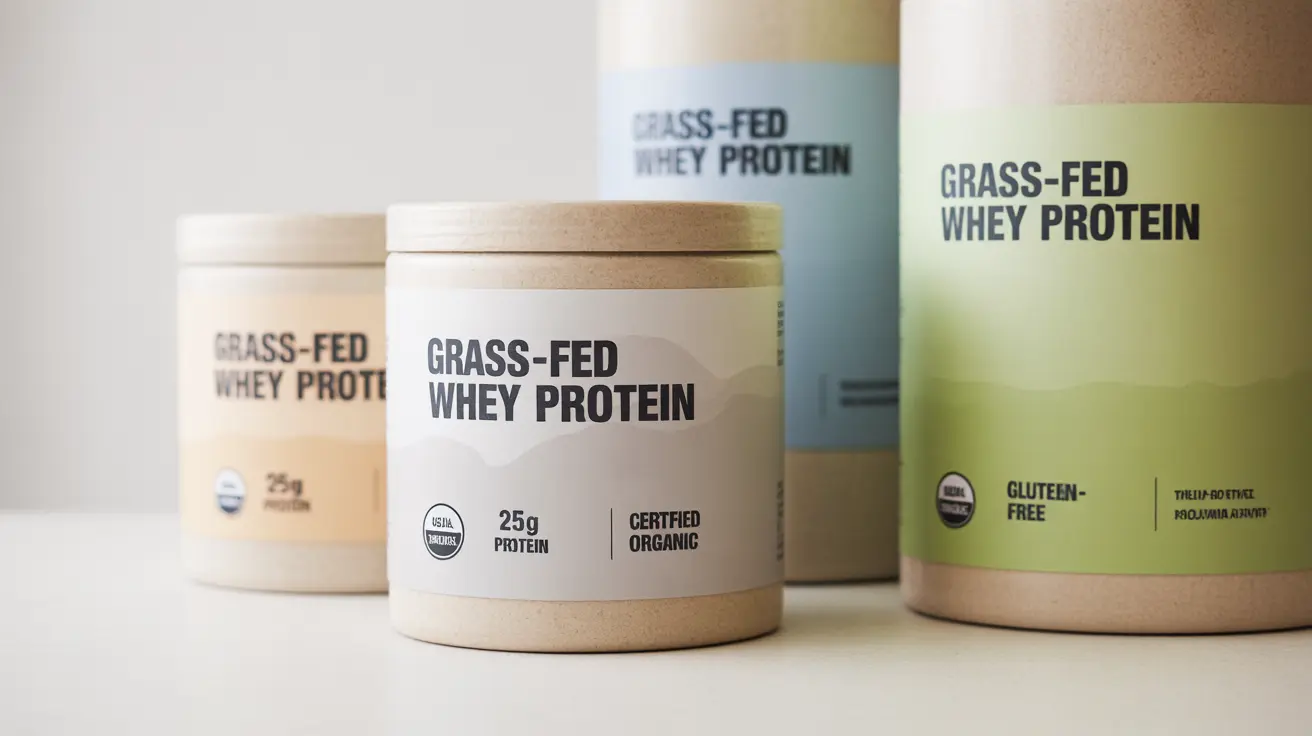Selecting the right healthy whey protein powder can feel overwhelming with countless options available on the market. Whether you're an athlete, fitness enthusiast, or someone looking to supplement their protein intake, understanding what makes a quality whey protein powder is crucial for achieving your health and fitness goals.
In this comprehensive guide, we'll explore the key factors to consider when choosing a healthy whey protein powder, from ingredient quality to nutritional content, helping you make an informed decision that aligns with your wellness objectives.
Quality Indicators of Premium Whey Protein
When evaluating healthy whey protein powder options, several quality markers deserve your attention:
Protein Content and Purity
Look for products containing at least 20-25 grams of protein per serving. The ingredient list should be straightforward, with whey protein isolate or concentrate listed as the primary ingredient. Avoid products with excessive fillers, artificial sweeteners, or unnecessary additives.
Processing Methods
Cold-processed whey protein maintains more of its biological activity and nutritional value. This gentle processing method helps preserve important protein fractions and immune-boosting compounds naturally present in whey.
Understanding Different Types of Whey Protein
Whey Protein Isolate
This form contains the highest protein concentration (90% or more) with minimal lactose and fat. It's ideal for those seeking lean protein supplementation or individuals with mild lactose sensitivity.
Whey Protein Concentrate
Offering a balanced nutrient profile with 70-80% protein content, concentrate retains more beneficial compounds but also contains more lactose and fat than isolate.
The Benefits of Grass-Fed Whey Protein
Grass-fed whey protein comes from cows that graze on natural pastures, resulting in several advantages:
- Higher omega-3 fatty acid content
- Increased concentrations of beneficial nutrients
- Better environmental sustainability
- Superior amino acid profile
Certification and Testing Standards
Third-party testing and certifications provide assurance of product quality and safety. Look for these important credentials:
- NSF Certified for Sport
- Informed Choice certification
- USDA Organic certification
- Good Manufacturing Practices (GMP) compliance
Nutritional Considerations for Different Goals
Weight Management
For weight loss goals, choose products with minimal added sugars and lower calorie counts (around 120 calories per serving). Focus on whey protein isolate varieties that provide maximum protein with minimal additional ingredients.
Muscle Building
Those aiming to build muscle should look for formulations with 25-30 grams of protein per serving and a complete amino acid profile, particularly rich in leucine.
Frequently Asked Questions
What should I look for when choosing a healthy whey protein powder?
Look for products with minimal ingredients, at least 20-25g of protein per serving, third-party testing certification, and no artificial sweeteners or preservatives. Check for transparent labeling and reputable manufacturing practices.
How does grass-fed whey protein differ from regular whey protein in terms of health benefits?
Grass-fed whey protein typically contains higher levels of omega-3 fatty acids, conjugated linoleic acid (CLA), and beneficial nutrients. It's also produced from cows raised without hormones and antibiotics, potentially offering better overall nutritional value.
Is unsweetened whey protein powder better for weight loss and overall health?
Yes, unsweetened whey protein powder is generally better for weight loss and health as it contains fewer calories and no artificial sweeteners. It allows better control over your sugar intake and helps avoid potential negative effects of artificial sweeteners.
What are the advantages of third-party tested and certified organic whey protein powders?
Third-party tested and certified organic products ensure purity, potency, and safety. These certifications verify that the product contains what it claims, is free from contaminants, and meets strict quality standards.
How much protein and calories should I consider in whey protein powder based on my fitness goals?
For general fitness, aim for 20-25g protein per serving. Weight loss focused individuals should look for options with 100-120 calories per serving, while those building muscle might prefer formulas with 25-30g protein and up to 150 calories per serving.




